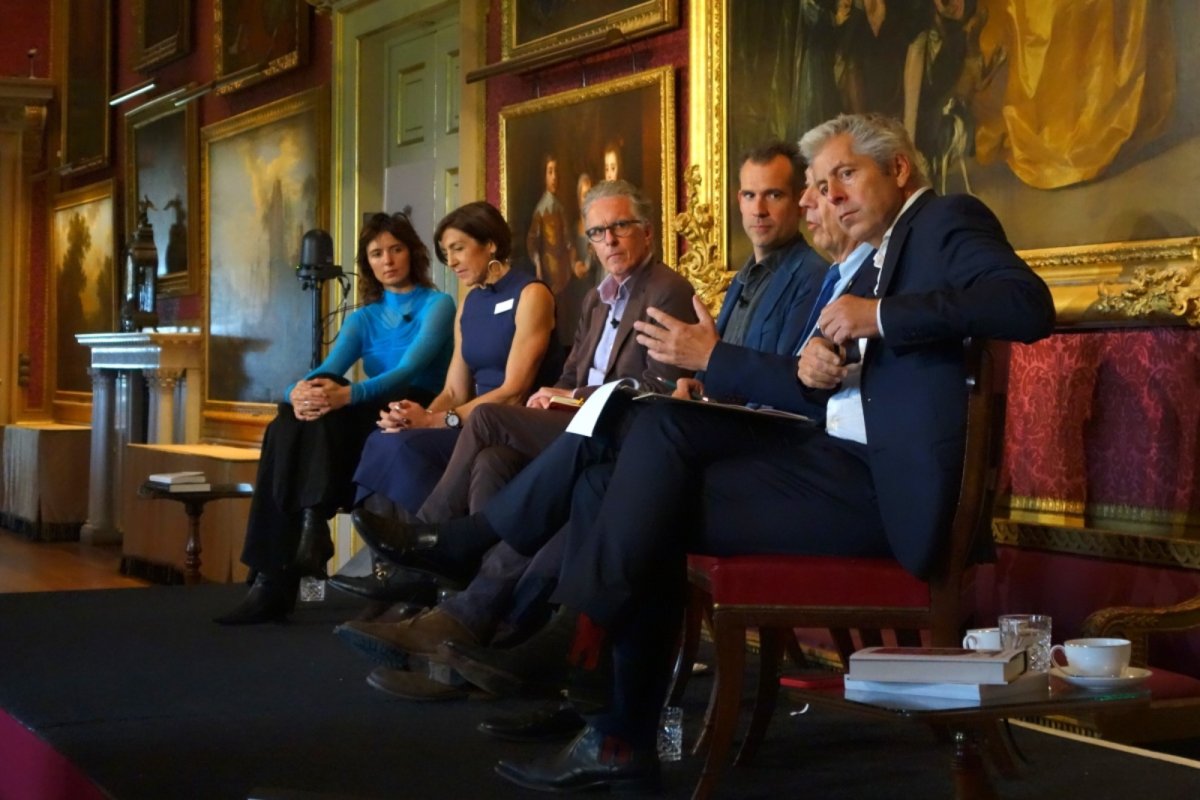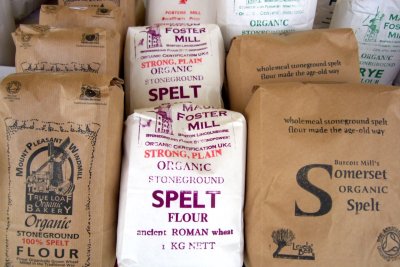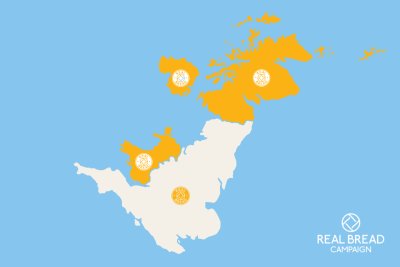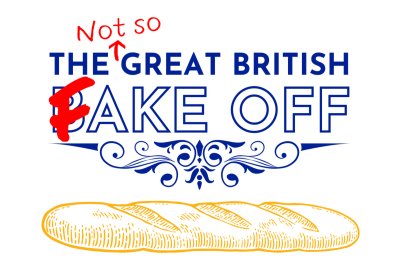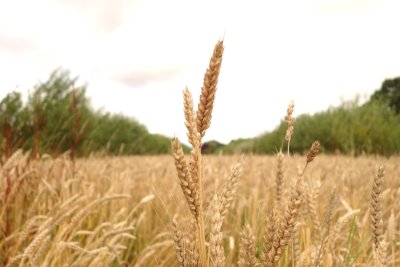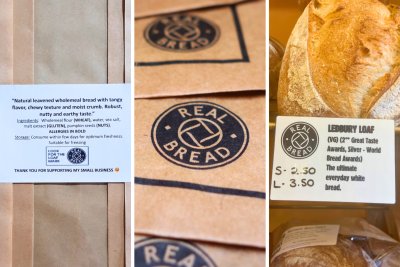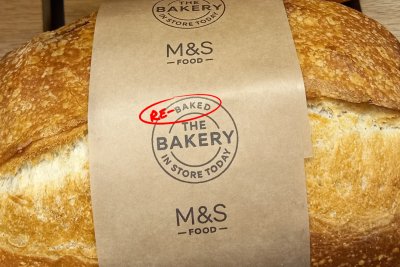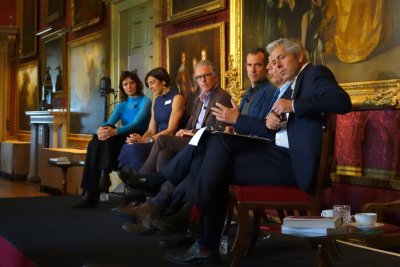 Goodwood Health Summit panel. Credit: Chris Young / www.realbreadcampaign.org CC-BY-SA-4.0
Goodwood Health Summit panel. Credit: Chris Young / www.realbreadcampaign.org CC-BY-SA-4.0
The first Goodwood Health Summit was held at Goodwood House on 28 September 2023 to discuss the costs of poor nutrition.
Hosted by the Duchess of Richmond and chaired by BBC broadcaster Justin Webb, the event’s speakers included:
- Professor Edward Bullmore, Deputy Head of the Clinical School at the University of Cambridge, is an expert in immuno-psychiatry and author of The Inflamed Mind.
- Jessie Inchauspé, the ‘Glucose Goddess’ biochemist and author.
- Dr. James Kinross, a senior lecturer at Imperial College London and author of Dark Matter.
- Professor Pekka Pushka, president of The European Society of Preventative Medicine.
- Dr. Chris van Tulleken, infectious diseases doctor at UCHL and author of Ultra Processed People.
- Stephanie Moore, a clinical nutritionist, physical and mental health coach, and author of Eat Your Brain Happy.
Video recordings of the talks are available to view, and further details can be found, on the Goodwood Health Summit website.
Sustain in the room
Around 100 delegates, each working in the fields of health, food or nutrition, attended the event in person. They included Children’s Food Campaign coordinator Barbara Crowther, Real Bread Campaign coordinator Chris Young, and representatives from The Food Foundation, Obesity Health Alliance and a number of other Sustain alliance member organisations.
Questions during the second session including Chris Young asking the panel what they felt about the lack of legal definition and regulation of terms associated with healthy eating and real food, including wholegrain, fresh bread and sourdough. You can hear Dr. Chris and Jessie’s responses from 38m 30s into the second recording.
The final panel session included diuscussion and debate across a range of topics. They ranged from public sector food; the use of agrochemicals in farming; the marketing of unhealthy foods, including the prevalence of promotions; to questionable relationships between industry and policy makers. Barbara asked the panel about the importance of early years and school food, and what a healthy school breakfast really would look like. You can hear Barbara’s question and the panel’s response 40m 08s into the third recording.
A snapshot of the talks
Dr. James Kinross called for investment in a better understanding of the microbiome, which might help to prevent the diseases he treats as a colorectal surgeon. He compared the complexity of the microbiome, and our lack of understanding of it, to that of deep space and lamented that we’re only just learning about the microbiome after the food we eat might have time diminished and damaged it irreversibly already.
Professor Edward Bullmore asked attendees to consider links between diet and mental wellbeing. He discussed what he called a ‘medical apartheid’ of how our mental and physical health is understood and cared for, from ways medical professionals are trained, to separate hospital buildings and even computer systems.
Dr. Chris van Tulleken highlighted the growing body of evidence that ultra-processed foods might be having dramatically negative effects on our health, and not necessarily only due to high levels of salt, fat and sugar. He highlighted the physical stunting of some children by the time they arrive at school.
He also spoke of the influence of the Big Food industry, describing the ‘commodification of ill-health’, in which food is manufactured and marketed for profit rather than for nutrition. Those profits, he said, enable big food corporations to market their products even harder to encourage greater consumption, as well as giving them greater power to challenge appropriate regulation. The discussion that followed included possible levers for change, such as taxation and the power of school food done well.
Jessie Inchauspé echoed Chris’s disdain for industrial food and retail sector that “sells you a product but takes your health and your money.” She explained just how radically ultra-processing of food changes our bodies’ reaction to it. Education is key in the fight against poor nutrition and health, she said, but that positive changes must be made easy, fun and bite-sized.
Professor Pekka Puska is a Finnish public health pioneer, who led the ground-breaking North Karelia Project in the 1970s. The project showed that a systemic approach to improving health, involving every sector of society, could have measurable, positive impacts on people across an entire region. He compared the challenge of ultra-processed food to that of tobacco and that lessons can be learned from that fight. He was concerned, however, that as tobacco is a single and unnecessary product, while food is essential and almost infinite category, changing the world’s addiction to ultra-processed foods will be much more difficult.
He ended on a more positive note: people want to eat better and prevention is not only possible but it also really pays off. Having started in the 1940s, Finland has the longest running free school meals programme in the world, with a focus on healthy nutrition and connected into the curriculum since 2004.
Real Bread Campaign: The Real Bread Campaign finds and shares ways to make bread better for us, better for our communities and better for the planet. Whether your interest is local food, community-focussed small enterprises, honest labelling, therapeutic baking, or simply tasty toast, everyone is invited to become a Campaign supporter.
Sustain
The Green House
244-254 Cambridge Heath Road
London E2 9DA
020 3559 6777
sustain@sustainweb.org
Sustain advocates food and agriculture policies and practices that enhance the health and welfare of people and animals, improve the working and living environment, promote equity and enrich society and culture.
© Sustain 2024
Registered charity (no. 1018643)
Data privacy & cookies
